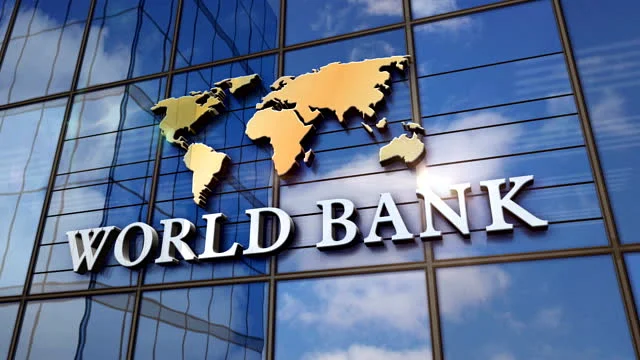
Washington, January 12 (RHC)-- The global economy is entering a phase of “pronounced slowdown”, the World Bank has warned, as the Omicron variant of the coronavirus, and the triple blow of soaring inflation, high government debt levels and rising income inequality threaten recoveries in emerging and developing economies.
The latest Global Economic Prospects report (PDF) from the World Bank sees global economic growth downshifting from 5.5 percent in 2021 to 4.1 percent in 2022 – an outlook that is more pessimistic than its June call for 4.3 percent growth this year.
Throughout the pandemic, the bank has raised the alarm about growing levels of inequality both within and between nations – and its latest outlook is no exception.
In developing economies, many governments lack the spending power to kick-start growth. Meanwhile, swelling prices for assets like stocks and real estate continue to make the rich even richer while stoking inflation that hits low-income households especially hard.
Moreover, unlike more developed economies, emerging and developing countries have less monetary wiggle room to let inflation run hot. Many have already raised interest rates several times to keep price pressures in check, but that policy tool also cools economic activity. The upshot: raising borrowing costs increases the chances that developing and emerging economies could experience a “hard landing” – when economic activity rebounds rapidly from a blow, only to slow down sharply.
“This increasing divergence of fortunes is especially troubling given the possibility of social discontent in developing countries,” the bank warned.
Widening inequality is being exacerbated by growing uncertainty as Omicron infections spread rapidly, the bank noted, disrupting economic activity that is already being hampered by supply chain bottlenecks.
Those supply snarls are leaving poorer nations “last in the global supply line” the bank said, as countries with deeper pockets outbid them for scarce goods. Shortages of raw materials and the resulting volatility in commodity prices, as well as “extreme weather events driven by climate change are aggravating food insecurity risks, further burdening health and nutrition,” said the report.
Richer nations are expected to see a deceleration in economic growth from 5 percent last year to 3.8 percent this year and 2.3 percent in 2023 – a moderating pace that the bank said will nevertheless “be sufficient to restore output and investment to their pre-pandemic trend in these economies.”
For emerging and developing economies, by contrast, the bank is calling for growth rates to plunge from 6.3 percent last year to 4.6 percent this year, and 4.4 percent in 2023 – leaving economic growth in those countries 4 percent below their pre-pandemic trend.
“For many vulnerable economies, the setback is even larger,” the bank said, noting that “output of fragile and conflict-affected economies will be 7.5 percent below its pre-pandemic trend, and output of small island states will be 8.5 percent below.”
As it has in past reports, the bank continues to call for nations to prioritise coronavirus vaccine equity to bring the pandemic “under control.” “The supply of vaccines is increasing appreciably, but new variants and vaccine deployment bottlenecks remain major obstacles, causing the uncertainty over health to persist well into the future,” said the report.
The World Bank also continues to press for accelerated debt relief efforts to help low-income countries that are under stress.

